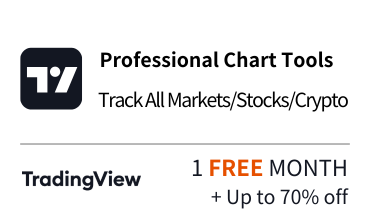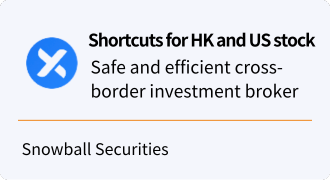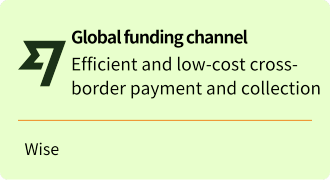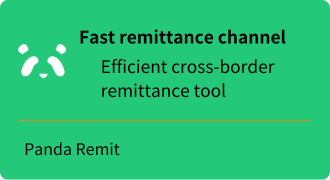Beyond transactions: Why do you need a comprehensive wealth management system?
[DISCLAIMER] This article is for educational and informational purposes only and does not constitute investment advice. Past performance doesn't guarantee future results. Markets carry risk; invest cautiously.
If you're reading this article, you're no stranger to investing.
Perhaps you've already:
- Studied technical analysis and fundamentals of stocks
- Understood how the forex market operates
- Monitored market trends, seeking investment opportunities
- Been searching for better investment strategies and methods
But let me ask you a few questions:
✓ Do you have clear wealth goals and a path to achieve them?
✓ Is your asset allocation structure reasonable?
✓ What percentage of your total wealth is in stocks/forex?
✓ If the market drops 30%, would your life be affected?
✓ Is your risk protection system complete?
If you're hesitant about these questions, it means:
You've mastered the "techniques" of investing, but may still lack the "philosophy" of wealth management.
I. Investing ≠ Wealth Management: Why Do Many People Make Money But Can't Keep Their Wealth?
This is the most common phenomenon I've observed in over 10 years of financial education:
Case 1: Mr. Li's Dilemma
- Made 150,000 yuan in stocks in 2020
- Lost 80,000 yuan in forex in 2021
- Lost another 50,000 yuan in 2022
- After three years, his assets actually shrank
Case 2: Mr. Wang's Regret
- Had 200,000 yuan in his stock account
- But no emergency reserve fund
- When his father fell ill last year, he had to sell at a high point
- Lost 3 years of returns
What went wrong?
They both understood investing and had practical experience. But what they lacked was a complete wealth management framework.
II. The Wealth Management Pyramid: Which Level Are You On?
Let me illustrate with a pyramid:
[Pyramid Structure]
The problem with most investors:
- Excel at the top of the pyramid (stocks, forex)
- Neglect the foundational base
- Like building a skyscraper on sand
The result:
- One accident could collapse the entire wealth system
- Don't know how to protect wealth after making money
- Lack a systematic path to wealth growth
III. Why Do Even Investment Experts Need a Wealth Management Framework?
Misconception: I'm already trading stocks/forex, do I still need to learn basic financial management?
Let me tell you a truth: The better the investor, the more they need a solid financial foundation.
Reason 1: Investing is Partial, Wealth Management is Global
- Investing focuses on: Will this stock rise? What's the trend of this currency pair?
- Wealth management focuses on: Is my overall asset health good? Are the proportions of various assets reasonable? How large is my risk exposure?
An analogy:
- Investing is "making money"
- Wealth management is "managing money"
- You can make a lot of money, but if you can't manage it, you ultimately can't keep it
Reason 2: Risk Concentration Problem
If your assets are overly concentrated in stocks and forex:
- Single market risk is too high
- Liquidity management is difficult
- Lack of hedging mechanisms
- Tremendous psychological pressure
A real case:
I had a student who did very well in the forex market, growing his account from 100,000 to 500,000 yuan. But all his assets were in the forex account, with no other allocation.
During a black swan event in 2023, his account drew down 40%, from 500,000 to 300,000 yuan. Worse, his child's tuition was due that month, forcing him to withdraw funds at the low point.
If he had a financial framework:
- 300,000 yuan in the forex account
- 150,000 yuan in fund investments
- 50,000 yuan emergency reserve
Even if the forex account drew down, the overall asset loss could be controlled within 20%, without affecting his life.
Reason 3: Sustainability Problem
Stock and forex investing:
- ✓ High return potential
- ✗ Requires significant time and energy
- ✗ High psychological pressure
- ✗ Difficult to sustain long-term
Complete financial framework:
- ✓ Automated operation
- ✓ Low pressure
- ✓ Sustainable for decades
- ✓ Becomes easier over time
Buffett's 90/10 Rule:
Even Warren Buffett suggests ordinary people adopt a 90/10 allocation:
- 90% in S&P 500 index funds
- 10% in short-term treasury bonds
Why? Because he knows deeply: For most people, systems beat skills, discipline beats talent.
IV. How Does This Course Help You Build a Complete Wealth Management Framework?
If the stock and forex knowledge you learned on our website is "offense," then this financial management course teaches you "defense" and "system building."
Three Core Values of the Course:
Value 1: Help You Build the Foundational Framework of Wealth Management
Articles 1-3: Cognitive Reconstruction
- Reunderstand the underlying logic of wealth growth
- Establish asset allocation thinking
- Design an allocation model suitable for you
Articles 4-5: Financial Diagnosis
- Comprehensively evaluate your financial health
- Identify risk exposures
- Set clear wealth goals
This section answers: Is my wealth foundation solid?
Value 2: Teach You to Build Sustainable Growth Assets
Articles 6-7: Basic Allocation
- Establish forced savings system
- Master fund investment methods (including global allocation)
- Learn to select quality funds
Article 8: Risk Protection
- Complete insurance allocation
- Establish risk firewall
This section answers: Besides stocks/forex, what else should I allocate?
Value 3: Form a Dynamic Adjustment Complete System
Articles 9-10: Advanced Optimization
- Learn asset rebalancing
- Establish regular review mechanisms
- Build a sustainable wealth growth system
This section answers: How to keep the wealth management system running long-term?
Complementary Relationship with Stock/Forex Investing:
| Dimension | Stock/Forex Investing | Financial Framework | Combined Result |
|---|---|---|---|
| Goal | High returns | Steady growth | Offense + defense balance |
| Time | Continuous monitoring | Automated operation | Reduced pressure |
| Risk | High concentration | Diversified allocation | Overall risk controllable |
| Mindset | Easy anxiety | Calm composure | More stable psychology |
Simply put:
- Stocks/forex are your "offensive assets" (20-40%)
- The financial framework helps you allocate "defensive assets" (60-80%)
- Combined, they form a complete wealth management system
V. 10 Articles + 10 Tools: Building Your Financial Framework from 0 to 1
Complete Content Overview:
[Stage 1: Building Foundation] Cognitive Reconstruction (3 articles)
- Break through financial misconceptions, establish correct cognition
- Understand the underlying logic of wealth growth
- Master asset allocation philosophy
Supporting Tools:
- Financial Cognition Self-Assessment Form
- Personal Wealth Goal Setting Framework
- Personal Asset Allocation Plan Generator
[Stage 2: Diagnosis] Financial Check-up (2 articles)
- 5-step diagnosis of your financial health
- Formulate executable financial plans
Supporting Tools:
- Personal Financial Health Scorecard
- Smart Goal Fund Calculator
- Multi-Goal Fund Allocation Optimizer
[Stage 3: Build System] Practical Implementation (3 articles)
- Forced savings system, painless saving
- Complete guide to fund investing (including domestic + overseas QDII allocation)
- Insurance allocation plan, establishing risk protection
Supporting Tools:
- Automatic Savings Setup Guide
- Fund Screening Checklist
- Insurance Allocation Decision Tree
[Stage 4: Sustainability] Dynamic Optimization (2 articles)
- Asset allocation rebalancing strategy
- Building a sustainable wealth growth system
Supporting Tools:
- Asset Allocation Rebalancing Detection Tool
- Asset Allocation Monthly Dashboard
VI. What Makes This Course Different from Other Financial Courses?
Core Difference 1: Different Positioning
| Other Courses | This Course |
|---|---|
| Various gimmicks | Only practical content |
| Start from "what is finance" | Start from "how to build a system" |
| Encourage consumption, sell products | Pure methodology and tools |
You don't need to start from scratch, jump straight into framework building.
Core Difference 2: Different Methodology
Other courses: Tell you to do asset allocation, but don't tell you how
This course:
- Provides Personal Asset Allocation Plan Generator
- Gives you Asset Allocation Rebalancing Detection Tool
- Teaches you to use Asset Allocation Monthly Dashboard for tracking
From "knowing" to "doing," tools are key.
Core Difference 3: Different Perspective
- Other courses: Treat financial management as an isolated matter
- This course: See financial management as the foundational framework of wealth management
Just like you learn stock and forex investing on the website, this course helps you complete the other 80% of the wealth management puzzle.
VII. Real Student Cases: The Evolution of Investors
Student Mr. Zhang (35, experienced investor, 10 years experience)
"I've been trading stocks for 8 years, forex for 2 years. My account peaked at 800,000 yuan, but now it's only 500,000. It's not that my skills are poor, but I lacked overall planning. After reading the course, I redid my asset allocation: 300,000 continues in stocks and forex (my strength), 200,000 allocated to Shanghai-Shenzhen 300 and NASDAQ QDII investments, 100,000 for emergency reserves and insurance. Now even if stocks lose money, overall assets are still growing, and my mindset is much more stable."
Student Mr. Chen (29, forex trader)
"I always thought I understood investing and didn't need to learn about financial management. Until one time my cash flow broke, forcing me to close positions at a loss, I realized the importance of fund management. Articles 4-5 of the course made me re-examine my financial situation, and Article 6's forced savings system helped me build a safety net. Now my forex trading is actually more composed, because I know even if I lose this 300,000, I have other assets supporting me."
Student Mr. Wang (32, quantitative trader)
"As a quantitative trader, I value data and tools. What attracted me most about this course are those Excel tools, especially the Asset Allocation Rebalancing Detection Tool and Asset Allocation Monthly Dashboard, which let me manage overall assets like I manage trading systems. Now I use these tools monthly for review, and my asset allocation stays in optimal condition."
VIII. Is This Course Suitable for Me? Self-Assessment
This course is especially suitable for you if you are:
✓ A trader already doing stock/forex investing
- Want to build a more complete wealth management framework
- Hope to reduce overall portfolio risk
- Need systematic asset allocation methods
✓ An advanced investor with some investment knowledge
- Don't want to start from beginner content
- Hope to jump straight into system building
- Value tools and executability
✓ A rational investor pursuing steady wealth growth
- Don't pursue get-rich-quick schemes, pursue sustainability
- Value risk control
- Want "passive income"
✓ A working professional with limited time but wants to manage finances
- No time to watch the market daily
- Need automated financial management system
- Monthly income 5,000 to 30,000 yuan
IX. Questions You May Still Have
Q1: "I mainly do stocks/forex, is this course useful for me?"
A: On the contrary, you need this course even more.
Reasons:
- You've mastered "offense" but may lack "defense"
- The high risk of stocks/forex needs other assets to balance
- A complete asset allocation framework makes your trading more composed
Analogy:
- A football team can't have only forwards
- An army can't have only assault troops
- Complete wealth management needs offense + defense
Q2: "Will the content be too basic and not helpful for me?"
A: The course doesn't start from "what is a fund."
I assume you already have investment experience, so:
- Don't explain basic concepts, go straight to methodology
- Don't explain why you need financial management, go straight to how to build the system
- Provide Excel tools, not introductory knowledge
Example:
- Article 7 on fund investing gives you a 3-step screening method and 10 indicators directly
- Article 9 on asset allocation teaches you specific rebalancing operations
- All tools can be used immediately
Q3: "What if my asset allocation strategy differs from what you teach?"
A: The course doesn't teach you the only allocation plan.
Core value lies in:
- Thinking framework: How to systematically think about asset allocation
- Tools and methods: How to quantitatively evaluate and dynamically adjust
- Execution system: How to automate financial management
You can:
- Keep your stock/forex strategies you're good at
- Use the course methods to complete other parts
- Adjust proportions based on your situation
The Personal Asset Allocation Plan Generator will create a personalized plan based on your situation, not a template.
Q4: "After subscribing, will I need to buy other tools or courses?"
A: Absolutely not.
Promise:
- ✓ 10 articles are a complete system
- ✓ 10 Excel tools provided free
- ✓ No hidden fees
- ✓ Won't sell any financial products
- ✓ No follow-up paid courses
X. Limited Early Bird Price: Investing in Yourself is Always the Best Trade
Look at this "trade" from an investment perspective:
Investment: ¥58 (price of a coffee)
Expected Returns:
- Build complete wealth management framework (invaluable)
- Get 10 Excel tools (worth at least 300 yuan separately)
- Avoid losses from lacking framework (at least thousands to tens of thousands)
- Reduce overall portfolio risk (enormous psychological value)
Return-to-risk ratio: Infinite
Recommended Learning Path:
- Week 1: Read articles 1-3, establish cognitive framework
- Week 2: Complete financial diagnosis (articles 4-5)
- Weeks 3-4: Start implementation (articles 6-8)
- Weeks 5-6: Build system (articles 9-10)
After 6 weeks, you'll have a complete wealth management system.
XI. Final Words
You've been through the ups and downs of stock and forex markets, and you know well the difficulty of investing.
You must also understand: The real expert isn't about how much money you've made, but how much you've kept, and how solid a wealth system you've built.
Soros has a famous quote: "It's not whether you're right or wrong that's important, but how much money you make when you're right and how much you lose when you're wrong."
Behind this quote is a complete risk management and asset allocation system.
Now, you have the opportunity to build this system for 99 yuan.
As an investor, you know how to make this decision.
➤ Free trial of Article 1
If you have any questions after subscribing, message me anytime.
About Haowai Uncle
CQF charter holder, focused on financial education for over 10 years. Brand motto: "Making Finance Simple."







